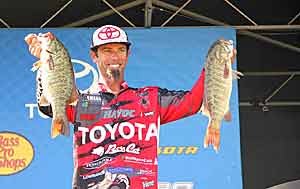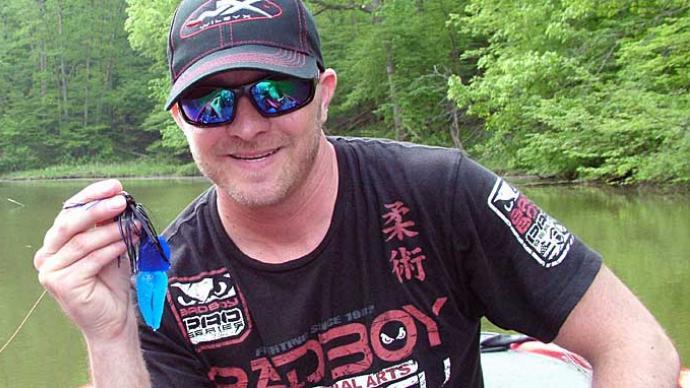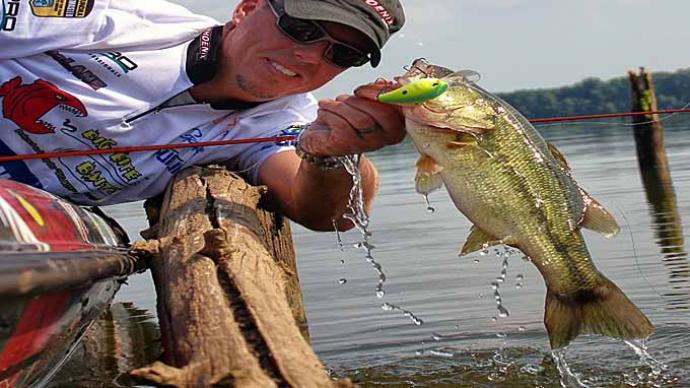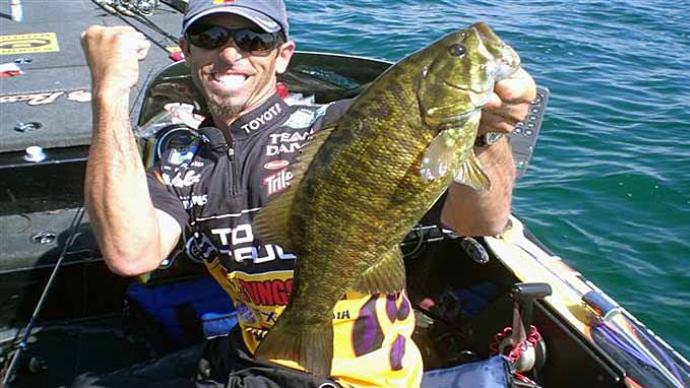
When seeking advice on securing and maintaining sponsorships in the fishing and marine industry, look for someone who has worn the hats and been behind the desks. That person is Cody Roswick, Pure Fishing field marketing manager. He covers the central United States from Texas to the northern border.
During a Breakout Session on the topic at the recently concluded National Professional Anglers Association annual conference, Cody emphasized how professional anglers should become assets, not liabilities. He was a past NPAA executive director, served as Lund Boats marketing manager, manages Pure Fishing events, handles regional pro staff, is on top of product innovations, and assists in advertising and public relations.
Generally, he emphasized that individual professional anglers first must sell themselves; they are the brand when selling themselves to sponsors. “Know how to promote yourself,” he said. Sponsors want sales. Those promoting for pay must show a return while strengthening the sponsor’s brands and image. “Keep promises, over-deliver, and find creative ways to increase sales opportunities,” he said.
His career has been based on three industry leaders and what they advised him many years ago. Ron Lindner said, “We are sales tools, always selling.” Eric Naig, with Pure Fishing, said, “Treat people how you want to be treated.” Lanny Orvalla, with Lund Boats for many years in the marketing department, said, “If you say you’re going to do something, do it.”
Cody said the fishing industry is changing: "Very few companies pay to support tournament fishing. They pay for the time and effort it takes to grow sales. Corporate heads want to know what you can do for them tomorrow.” From his perspective, Cody said, “Sponsors are cutting back due to costs they can’t control, like government healthcare. They will cut to survive, meaning some marketing plans and individuals may go.” The corporate return on investment is critical. “Make a difference by making money for them,” he said. He urged pro anglers to sell at shows and stores.
Most sponsorships start at the bottom until pro anglers earn their wings. Cody asked, “Can you devote the time to maximize sales?” He warned anglers when soliciting sponsorships, never asking, “What can you do for me? Turn it around, and showcase what you can do for them. His second warning hit home for many in the audience, “The more successful you become in working for sponsors, the less time you have for fishing, job, and family.”
While on the major advice bandwagon, he said, “Actions speak louder than words.” Jumping sponsor to sponsor erodes credibility, and if moving, do it for the right reasons, but never burn bridges or bad-mouth the competition.
One of the key ingredients to landing a sponsor is a resume with a cover letter outlining the proposal. Cody said, “Here’s a tip – keep the resume brief, and in the proposal, include ideas that, if implemented, will improve sales. Be willing to train store employees and do promotions.” For those who end up in front of sponsors or work shows or stores for them, it is critical to be professional. “Look the part,” he said, “Be courteous, help people on the water, at ramps, at weigh-ins, shave, choose when or if to drink alcohol, watch language – no cussing.”
He has seen several marketing differences that landed sponsorships for pro anglers, and the list includes:
- Offer to do seminars. They’re very impactful.
- Do seminars at retail and in the boat at parking lots for youth.
- Offer to do employee training.
- Offer a VIP or sales associate fishing trip.
- Hold a store sweepstake with the main prize of a fishing trip.
- Field test and report (good or bad) suggestions for improvement.
- Post sponsor news on social media pages.
- Shoot with Go Pro and quality digital cameras and post photos.
- Post tastefully and professionally.
- Offer to provide social media and web content to sponsors.
- Keep a photo library and update it regularly.
- Make the sponsor’s life easier.
- Make the sponsor want to see you again.
- Keep communication lines open.
- Deliver quarterly reports to let them know what you’re doing.
- Always over-deliver.
- Increase your professionalism and that of those around you.
- Grow the sport, just like the NPAA motto reads.




